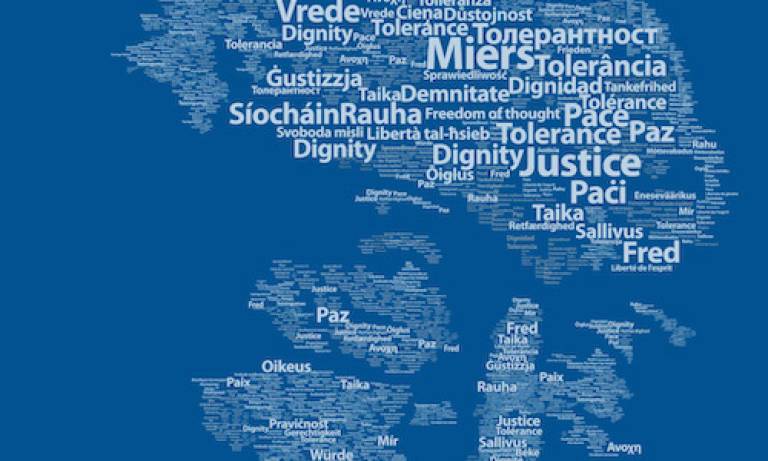Sakharov Debate 2019: Climate Rights as Human Rights?
29 November 2019, 11:00 am–12:30 pm

Join the UCL European Institute and the EP Liaison Office in the UK for another lively debate with academics, law-makers and civil society advocates.
Event Information
Open to
- All
Availability
- Yes
Organiser
-
UCL European Institute and European Parliament Liaison Office in the United Kingdom, Riina LYNAM
Location
-
Europe House32 Smith SquareLondonSW1P 3EUUnited Kingdom
Speakers
- Scott Ainslie MEP, Green Party Member of the European Parliament for London
- Sophia Dyvik Henke, Youth Climate Strike movement
- Sophie Marjanac, Climate Accountability Lead and Environmental Lawyer, ClientEarth
- Professor Lisa Vanhala, Professor of Political Science, UCL Department of Political Science
- Irina von Wiese MEP, Lib Dem Member of the European Parliament for London region and Vice-Chair of the Subcommittee on Human Rights (@IrinavonWiese)
- Moderator: Emma Nelson, Presenter and Repoter (BBC London, Classic FM and France24)
Description
It is now beyond scientific doubt that the Earth’s climate is changing, with devastating impacts on the environments we live in. But climate change also affects human rights across the globe: “the world has never seen a threat to human rights of this scope,” the UN High Commissioner for Human Rights Michelle Bachelet warned earlier this year.
A human rights approach to climate change is important because it sheds light on its impacts on the life, health, private life and property of individuals, their rights to water and food, to housing and adequate standards of living. Climate change will affect us all, but disproportionately so the most vulnerable, including those living in extreme poverty, indigenous peoples, persons with disabilities, and displaced persons. And it is not just about human rights here and now – but also of future generations. Despite this, and despite an active civil society constituency, human rights language has not always been fully accepted in international negotiations and policies on climate change.
What, then, can be done? Human rights law is clearly key to holding governments directly to account for their (in)actions, to facilitating access to justice and enforcing existing law. While the Paris Agreement represented an important breakthrough in international governance, it is the unprecedented levels of grassroots mobilisation that has been one of the most significant developments of recent climate change politics. From globally orchestrated demonstrations and school strikes to ‘naming and shaming’ tactics towards the fossil fuel sector and the leveraging of shareholders to table climate and rights-friendly resolutions – the human rights dimension of climate change is increasingly in the spotlight. As are questions about the extent to which some mobilisations and policy responses may also infringe upon human rights.
These questions resonate particularly strongly in Europe. As the new Commission is nailing its flag to the mast, the Parliament has called for an even more ambitious 2030 greenhouse gas reduction target. However, earlier this year the European Court of Justice dismissed a case filed by 10 families and groups in eight countries, ruling that individuals cannot sue over climate change. Where then is the EU likely to go in this matter?
Join us and the EP Liaison Office in the UK for another lively debate with academics, law-makers and civil society advocates, chaired as always by the BBC’s Martine Croxall, and named in honour of the European Parliament’s annual Sakharov Prize.
Followed by a buffet lunch.
 Close
Close

